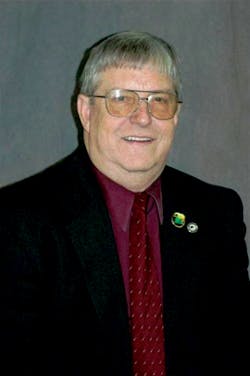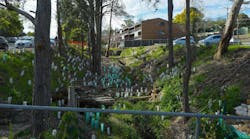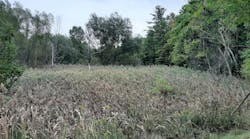IECA – University Partners
By Charles R. Riling Jr.
IECA-Region One partnerships with various universities and colleges from across the county, as well as Europe and Canada. These partnerships aren’t contractually based. However, there are some requirements associated.
The first requirement is that such courses as erosion control, soil science, hydrology, landscape architecture, geology, and professional engineering, to name a few, are offered as a part of the institute’s curriculum. The second condition is that the department head or professor selected must be an IECA member (in good standing) and must agree to be the liaison between IECA and the university or college.
Students-What’s In It for Me?
Students are not required to be IECA members to be a part of the University Partners program, although it is encouraged. IECA Region One offers a student membership for $25 per year. This provides a means to participate in the erosion and sediment control community, not only within the Region One territory, but also in the member’s area of residence as part of the local chapter. Being involved locally and internationally offers numerous ways to network with peers and obtain educational advantages to help launch a career. Student members also receive IECA’s official journal, Erosion Control, an e-subscription to Environmental Connection, quarterly member magazine, a copy of the annual IECA Membership Directory, one free IECA webinar per year, and so much more.
For additional information on how to become a student member, visit www.ieca.org/student.
In the past several years, IECA has offered students from the University Partners program to be moderators at Environmental Connection, IECA’s annual conference. This allows the students an opportunity to learn as they network with some of the most knowledgeable professionals in the erosion control, stormwater quality, and management industries from around the world. In addition, these students are invited to present their research projects at the Environmental Connection Poster Presentations. These presentations are judged and awarded at the conference, giving students a chance to see their work published in our professional publications.
Universities-What’s In It for Us?
IECA Region One requires the university partner liaison to be a member of IECA and in good standing at the institution. This point person acts as the liaison between the school, IECA, and the local chapter.
As the liaison, you would work with the students who would benefit from presenting research and sharing their findings. This partnership will allow students to have an additional level of involvement in their study curriculum that would not have existed otherwise. This opportunity gives the liason recognition not only among IECA peers, but also at the institution. It’s a great way to invest in the industry’s future leaders.
Who Makes Up the IECA Region One University Partner Program?
We have 17 schools that make up our University Partners program. Within the United States, they include University of Arizona, Auburn University, Cal Poly State University, California State University-Bakersfield, Colorado State University, Metropolitan State University of Denver, North Carolina State University, Purdue University, Shasta State College, Texas A&M University, University of Central Florida, University of Georgia, University of Tennessee, and West Virginia University. In Canada, we have the University of Guelph and the University of Toronto. Cranfield University represents the United Kingdom.



